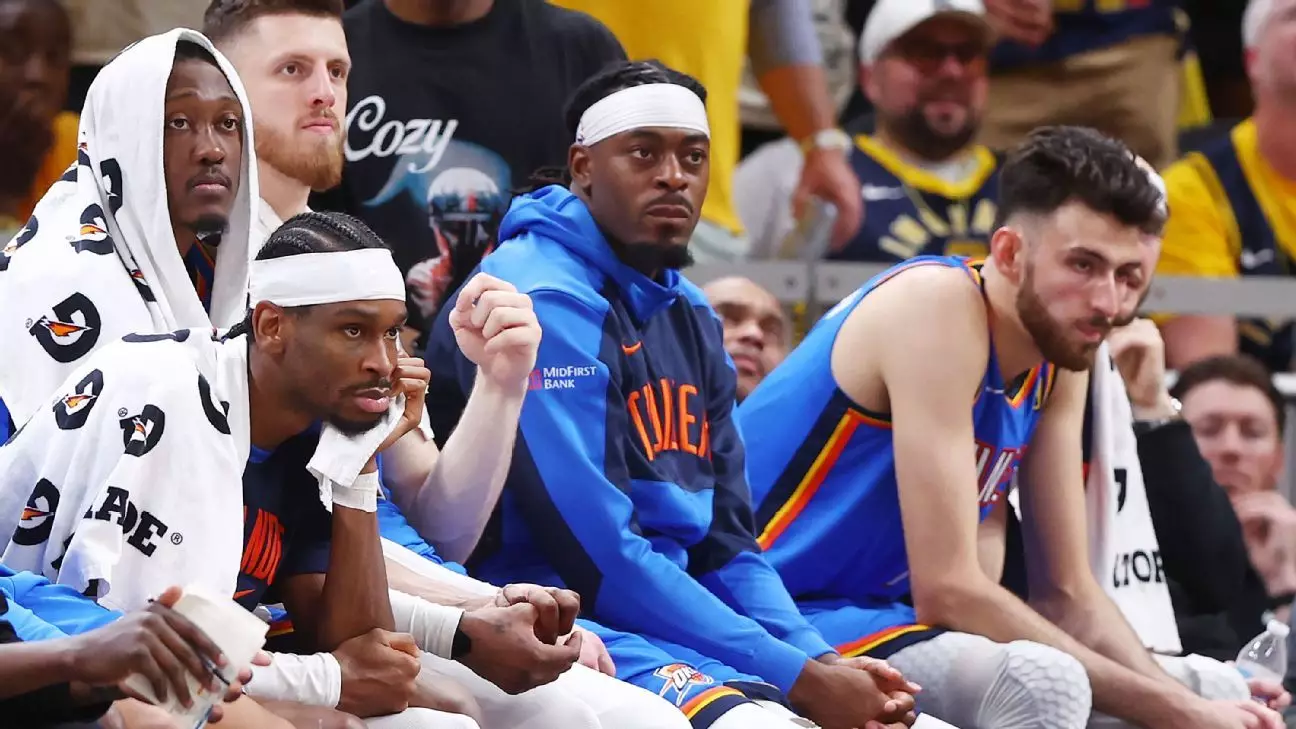The pressure could not have been higher for the Oklahoma City Thunder as they stepped onto the court, poised to capture a long-awaited championship. The stakes were monumental, yet what followed was a performance that could only be described as disheartening. A resounding loss to the Indiana Pacers, 108-91, shattered dreams and hopes that had been built over a long, arduous season. This game was a harsh reminder that even the most talented teams can falter when it matters most.
A somber Shai Gilgeous-Alexander encapsulated the mood after the game, expressing disappointment in both the team’s execution and mindset. “We need to learn the lessons,” he stated, recognizing that this loss posed a critical juncture for the Thunder. The weight of expectation cast a significant shadow over the players, and as they trudged off the court, it became clear that their aspirations were more fragile than anticipated.
Turnover Troubles and Offensive Stagnation
The performance was riddled with self-inflicted wounds, as Oklahoma City committed a staggering 21 turnovers. Of these, Gilgeous-Alexander alone was responsible for eight, equating to not just personal failure but a collective breakdown in fundamental team play. The productivity, or lack thereof, of the Thunder’s offense punctuated their struggles. An appalling shooting percentage of just 38.2% through three quarters showcased how the team struggled to find a rhythm. The disarray was epitomized by their abysmal three-point shooting, hitting only 3 of 20 attempts prior to the fourth quarter.
These issues were compounded by a stagnant offensive approach. As Thunder forward Jalen Williams observed, the offense became “sticky,” lacking in fluidity and trust. The team’s inability to execute basic plays and consistently make the next right decision rendered them ineffective and allowed the Pacers to dictate the game’s tempo. This lack of synchronization and cohesiveness was a direct contradiction to the fluid ball movement seen in their Game 5 triumph.
Coaching and Team Dynamics
In the aftermath of such a disheartening performance, the Thunder’s coaching staff faced the immense task of recalibrating the team’s focus for Game 7. Head coach Mark Daigneault’s analysis pointed to a collective failure, asserting that the team’s lack of engagement was pervasive. These reflections are crucial as they highlight a broader issue that transcends individual player performances: the entire squad must collectively commit to adapting and overcoming adversity.
When a core player like Gilgeous-Alexander acknowledges the weight of the championship opportunity before Game 6, it’s evident that mental fortitude, as much as skill, will dictate the outcome in the high-stakes scenario of a Game 7. The pressure can either foster resilience or create hindrances, and it remains to be seen how this group will respond to adversity—a balance that can define champions.
Lessons Learned and the Road Ahead
As the Thunder gear up for the all-or-nothing Game 7, it’s essential to draw from Game 6’s lessons. Developing a sharper mentality and a stronger collective identity will be vital. Teams who learn to navigate through failure often emerge stronger, yet how they process this moment will shape their legacy moving forward.
The beauty of playoff basketball lies in its unpredictability, and while the Thunder may have stumbled significantly, they stand at a pivotal crossroads. It’s a moment that could not only make or break their championship aspirations but could also become a foundational moment for growth and resilience within the franchise. Embracing this challenge and evolving as a unit will be paramount, not just for immediate success, but for long-term aspirations. Will they rise to the occasion, or will the ghosts of Game 6 linger to rob them of their potential glory? Only time will reveal the answer, but the anticipation is palpable.

